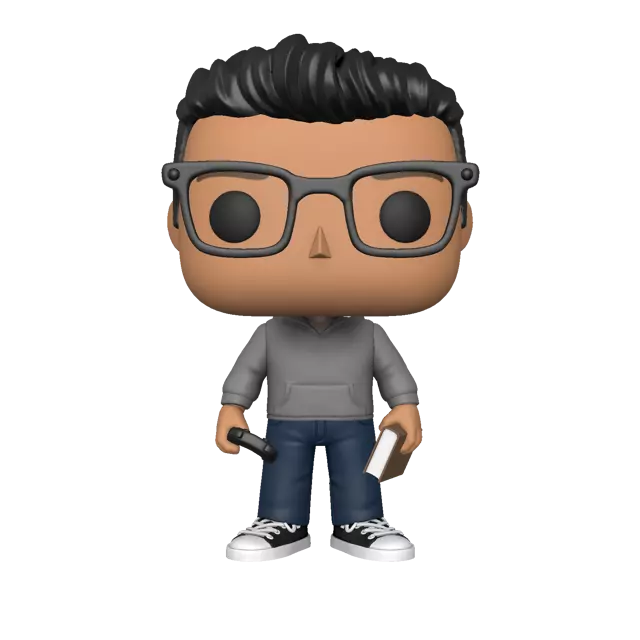I have weird quirk/tendency to stop listening / be distracted when someone explains something like during lectures for example. I fking hate this and it makes me dangerously close to failing college.
Generally, I don’t have it elsewhere. Just when someone is doing a verbal explanation, online or in person.
Perhaps it’s an issue of concentration, although generally I am able to do homework when I’m alone and focussing on it. At same time, I do get distracted relatively easily.
What is wrong with me? How to force myself to pay attention during classes and not doze off?
I made it to 35 years old before I realized this ain’t normal. Saw a therapist and got a referral to investigate ADHD, and now my entire childhood education makes sense why I failed everything.
I cannot stress how much treatment has improved my life. Consider getting evaluated, you may have tons of other signs without even knowing. Things like picking up hobbies and rapidly moving to new hobbies, fidgeting even without noticing, struggling to remember someone’s name after just meeting, so many things.
We have learned a lot more about ADHD the last 20 years and have many different ways to treat it, even without medication.
Things like picking up hobbies and rapidly moving to new hobbies, fidgeting even without noticing, struggling to remember someone’s name after just meeting, so many things.
Well fuck that’s me.
What kind of treatment are helping best? Fidgety thing, ritalin? That’s all I know for ADD/ADHD
I take Concerta, which is is only one that seemed to help me with the day to day. My therapist also gave me mental exercises and things to help me “process” stuff in ways that help.
I also have a fidget cube that can help if I find myself drifting a bit.
mental exercises and things to help me “process” stuff in ways that help.
That sounds interesting. What kind of exercises?
Part of my ADHD would cause high levels of frustration and occasionally get towards a panic attack? There are things like slowing your breathing, removing yourself from where the frustration is for 10 minutes, and reapproaching, etc.
It’s one of those things that is hard to give blanket things that work for everyone. You have to figure out what works for you, and a Therapist is qualified to help you with that discovery.
Take notes and/or doodle. I can only listen when I’m doing something else with my hands.
Taking notes (specifically pencil on paper) is known to also aid in information retention, plus if you need to refer to the notes again you can!
Taking notes helped me a lot in college, and I have ADHD. My guess is you’re lighting more parts of your brain up when you’re listening and writing that information down. Though I won’t do verbatim dictation, I just try to write the key points.
You haven’t got ADHD, have you?
I once got tested for add/adhd and came out negative, although at the time I didn’t know a lot about myself so it could have been a bad assessment.
I feel like experimenting with the some things people with add/adhd are given (ritalin, fidget object, what more?)
Sometimes those assessments can go wrong. People with high IQs often don’t get diagnosed, and self-reporting symptoms can be tricky because you’re being asked to describe ‘abnormal’ traits / experiences when, if you have ADHD, they seem very normal and unremarkable; for this reason, it takes a great deal of self awareness to be able to notice and articulate symptoms. Even neuropsychological examinations have limited utility in diagnosing ADHD (ask me how I know haha). That said, there could be many things going on - poor sleep quality due to sleep apnea or narcolepsy (often co-morbid with ADHD also), mini seizures, etc. It’s probably not a bad idea to speak to a doctor again. Unfortunately, if it is ADHD, it’s often hard to get a diagnosis in adulthood due to medical professionals having a poor understanding of the condition, or thinking that anyone exploring an ADHD diagnosis is pill seeking, so before you speak to anyone it’s worth really taking stock of your life, talking to close friends and family, and trying to learn what, if any, behaviors / experiences felt perfectly normal to you, but are not shared by others. For example, if you’re asked ‘do you have trouble sitting still for long periods of time when expected to,’ you may be inclined to answer no, because for you, shaking your leg and playing with objects might feel like a perfectly normal feature of sitting still, but others who have spent time around you might answer the question ‘lol yes’ on your behalf.
If it is ADHD, even if you do get a diagnosis from a psychologist, be prepared for a battle to have it treated with medication. Many psychiatrists won’t even consider treating you without a full-on neuropsychological evaluation (despite their limited utility), so you may need to be ready for the longest, most expensive (in the US anyway) standardized test of your life, and still possibly needing to fight your case.
In the interrim, I think fidget toys are a good idea; for me, I’d choose something like blue tack to make shapes with, or maybe doodling. Recording the lectures is probably also a good idea, so that you can go back and repeat sections you’ve zoned out through. Personally, I find stimulant mediation is more useful for executive function than sustained attention. (Of course, if there are also sleep issues going on, it’ll naturally help you there, but you really ought to be taking the stuff under medical supervision so best not to experiment on your own) I also haven’t been to school in years, so I never cracked this problem myself, I’m afraid.
I know most people want to jump to “You have trouble concentrating? You must have ADHD.” The biggest thing that differentiates a disorder from simply having symptoms is the severity of impact on a person’s life. If it causes a person so much distress that they cannot maintain classes or a job or family life, then intervention is needed.
I think it’s more likely a difference in attention stamina. I’m not sure about you, but going from high school to university was a large difference in attention demand. I didn’t have 70 min lectures in high school, but suddenly I was expected to pay attention for college classes.
I would highly suggest looking into attention stamina training, such as the increasing pomodoro training. Short spans of attention with breaks, and slowly increase the intervals. It is highly effective and used by medical student applicants in preparation for long attention demands for the entrance exam.
If the difficulty with attention is still very persistent, definitely talk to a counselor about it. Some of the first things they may ask you is whether you are getting regular and adequate sleep, and if you consume caffeine, as they each have a pretty large effect on concentration with everyone.
What really worked for me was attempting to type verbatim everything the professor said. You aren’t going to succeed but you’ll get better at making sure you get the important stuff but most importantly it forces you to take in what’s said. Worked for me quite well, though obviously it won’t work for everyone.
I recommend starting with 10 minutes of daily mindfulness meditation. It’s a great way to practice recognizing what your mind gets up to and catching it during a lecture before it has a chance to wander off on you.
I wouldn’t discount the possibility of adhd. In my personal experience, I know I had issues with this at one point in my life and I don’t have ADHD. Sitting up front helped. Taking notes. Doodling while listening actually helps me focus too. I have to do this during boring ass business meetings. Getting enough sleep is also a big one! Nothing will help if I’m tired as hell. Also consider getting a voice recorder and recording the lecture so you can go back to parts you spaced out on later.
My third and fourth year of college were also tough mentally. I was suffering some serious burn out at times and I couldn’t stay on task. What helped was telling myself “k, 10 or 15 minutes of work then I’ll take a break.” I’d take a break and do it again. Yeah it took longer, but it got done.
If your mind is wandering off to specific topics, maybe it just feels these need to be addressed now. The relative calm of the lecture gives it space to.
If that is the case, it can help to create a space for your mind to attend to these topics. You can talk with people about it, ventilate emotions, and/or write the thoughts down before lecture, so your mind has less need to cling to them.
This can also help when you cannot sleep because of thoughts.
Ritalin for your ADHD
Is ritalin all that’s given for ADD/ADHD?
Starting from highschool until after I undergraduate master, most lectures would trigger me uncontrollable naps.
Removed by mod






